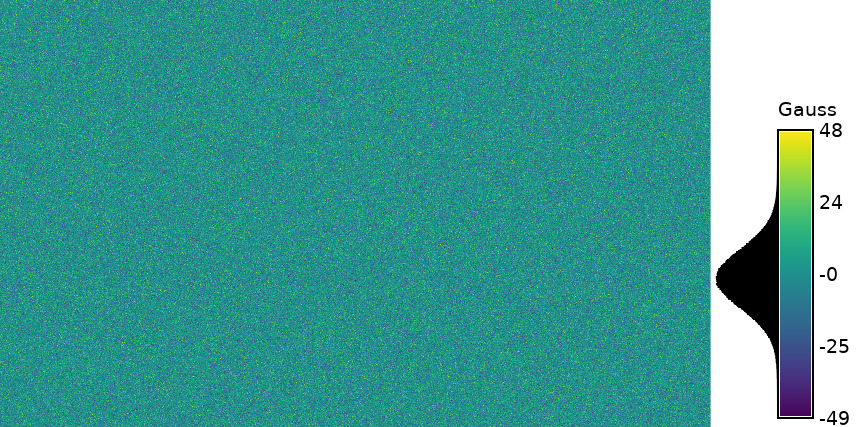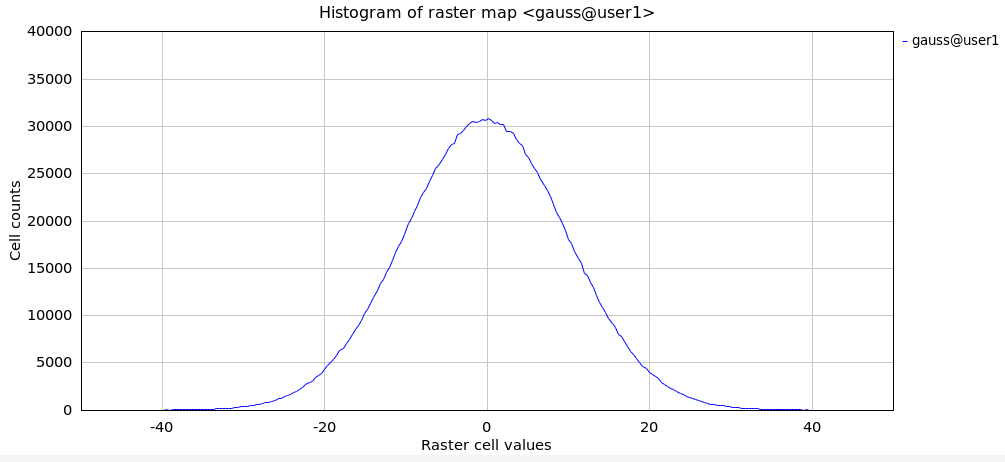
NAME
r.surf.gauss - Generates a raster map using gaussian random number generator.Mean and standard deviation of gaussian deviates can be expressed by the user.
KEYWORDS
raster, surface, randomSYNOPSIS
r.surf.gauss
r.surf.gauss --helpr.surf.gauss output=name [mean=float] [sigma=float] [--overwrite] [--help] [--verbose] [--quiet] [--ui]
Flags:
- --overwrite
- Allow output files to overwrite existing files
- --help
- Print usage summary
- --verbose
- Verbose module output
- --quiet
- Quiet module output
- --ui
- Force launching GUI dialog
Parameters:
- output=name [required]
- Name for output raster map
- mean=float
- Distribution mean
- Default: 0.0
- sigma=float
- Standard deviation
- Default: 1.0
Table of contents
DESCRIPTION
r.surf.gauss produces a raster map of Gaussian deviates whose mean and standard deviation can be expressed by the user. It uses a Gaussian random number generator. It is essentially the same as r.surf.random, but uses a Gaussian random number generator instead.EXAMPLE
g.region -p n=228500 s=215000 w=630000 e=645000 res=10 r.surf.gauss out=gauss mean=0 sigma=10 # check result r.univar gauss
With the histogram tool the cell values versus count can be shown.
SEE ALSO
r.surf.contour, r.surf.fractal, r.surf.idw, r.surf.random, v.surf.rstAUTHOR
Jo Wood, ASSIST's homeSOURCE CODE
Available at: r.surf.gauss source code (history)
Latest change: Thu Feb 3 11:10:06 2022 in commit: 73413160a81ed43e7a5ca0dc16f0b56e450e9fef
Main index | Raster index | Topics index | Keywords index | Graphical index | Full index
© 2003-2022 GRASS Development Team, GRASS GIS 8.0.3dev Reference Manual

